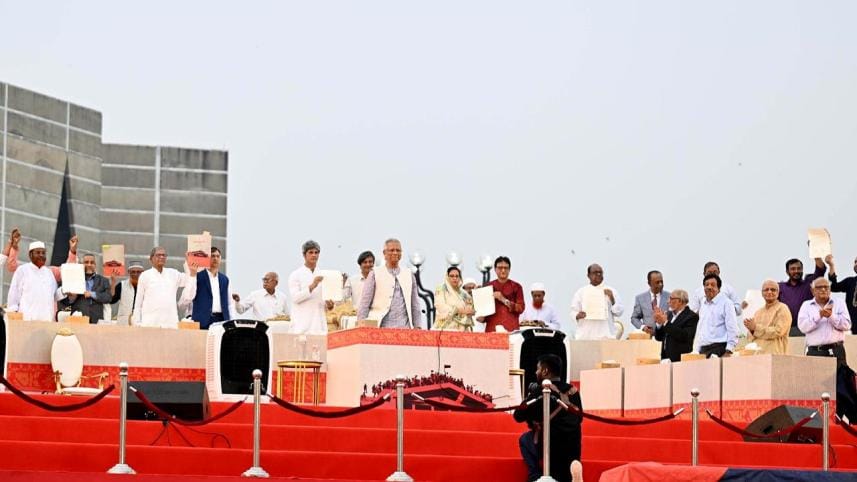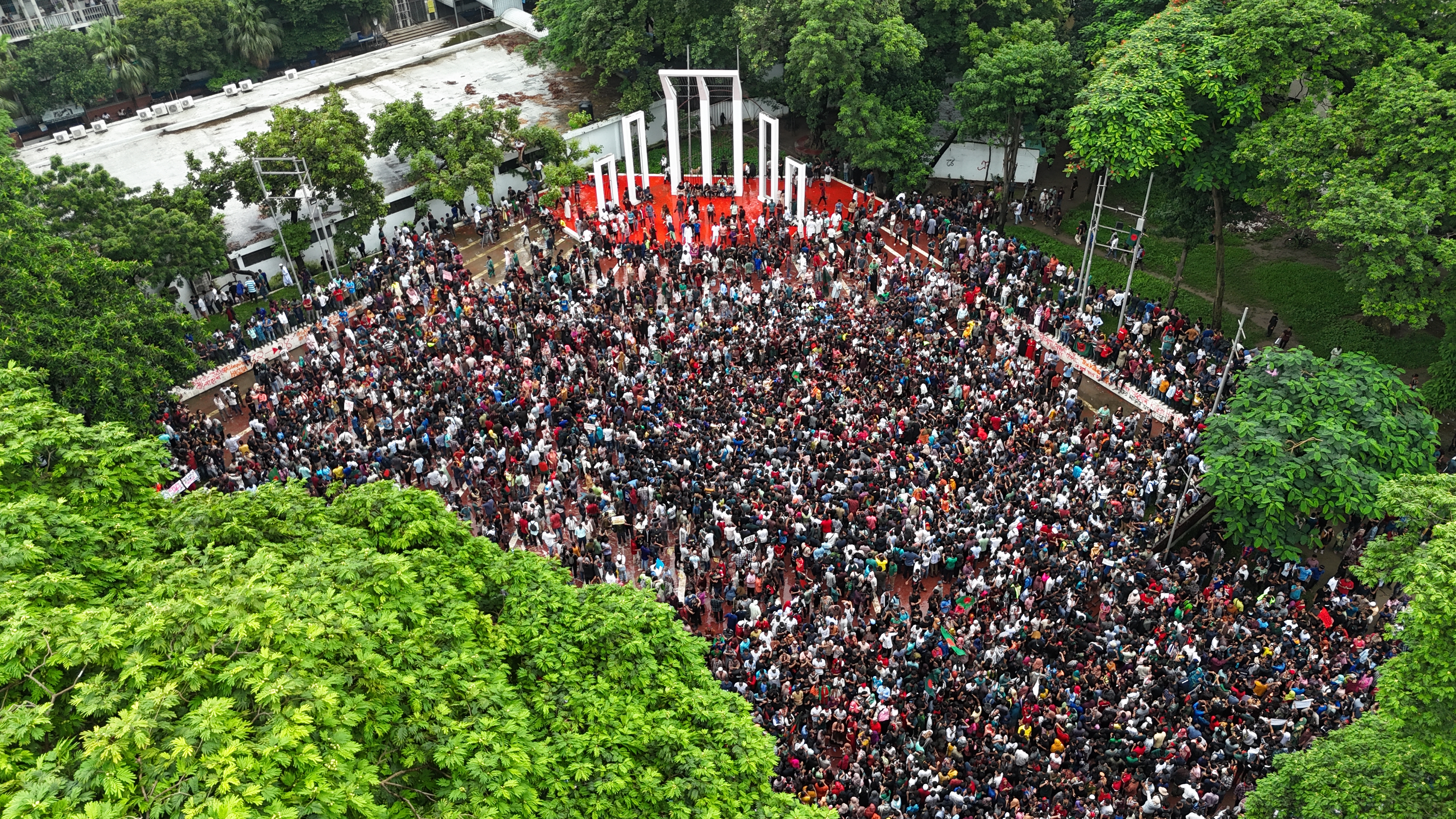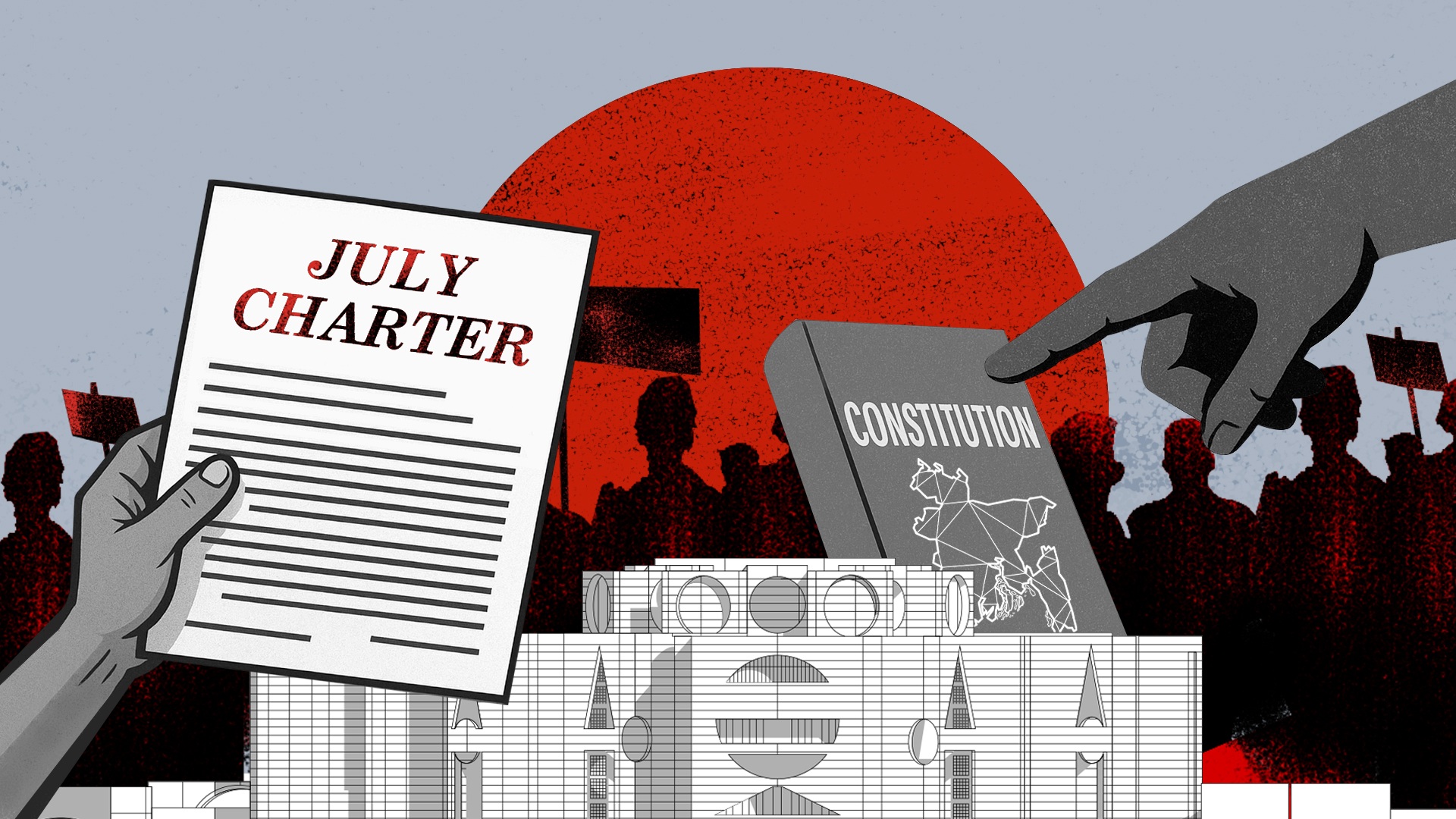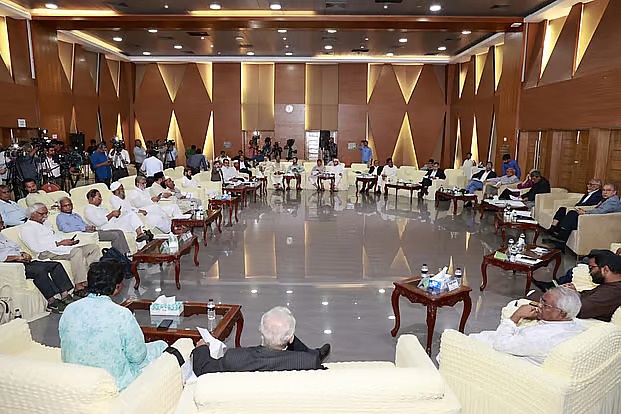Yunus, Charter, and Our Future

When Professor Muhammad Yunus agreed to take charge of the interim government, the people of Bangladesh heaved a sigh of relief. We really got the best man available, we thought. Yes, he may not have had the experience of running a government, but he founded the Grameen Bank, which also received a Nobel Prize along with the professor himself. I mention it because when an organisation gets the Nobel Prize, it must reflect the highest standards of internal governance, sustainability, ethical operation, compliance with staff rights, audit, and numerous other things. A man who could set up and run such an institution for decades, and later survive Sheikh Hasina's vicious and intense search for non-compliance of any sort—especially financial—across more than 40 business and non-profit bodies, does justify our confidence in him.
However, his running of the government for the last 14 months has raised serious questions, doubts, and uncertainties.
To start with, he could have picked a better team, and his error was not to recalibrate it, except for reshuffling one or two portfolios, that too due to special circumstances. Most heads of government reshuffle their cabinet, especially when the mandate is wide and the time available is limited. However, Professor Yunus remains an acceptable choice—perhaps with far less support than when he began—to head the government.
Recently, he proudly announced the signing of the July National Charter (JNC), which is the outcome of a glorious student-led uprising that freed us from a highly oppressive regime and is supposed to give us a new vision for Bangladesh—a Bangladesh that will have overcome all its flaws to ensure a future of rights, non-discrimination, freedoms, and democracy. He termed it as coming out of "barbarism into civilisation." He repeated it more than once. If he had specified the period of our "barbarism"—say, the tenure of the last regime—then the meaning of his statement would have been clearer. As it stands now, it has every chance of being interpreted as saying that all 54 years of our independent Bangladesh were like living under "barbarism." Can any proud Bangladeshi accept it? As a freedom fighter, and as someone who has lived throughout this period, I cannot accept such a sweeping condemnation. What sort of people does it make us out to be? What global impression does it give of us? Yes, we have had our failures, but to be "barbaric"?
During his speech, he paid tribute to the heroes of the July uprising—to which we enthusiastically add our voice, as we always do and will continue to—and said that the "young" will give leadership not only to Bangladesh but to the world. It has now been almost 15 months since the uprising. Have we become an example for ourselves, let alone the world? Doubt still exists about a peaceful, free, and fair election, which is a fundamental prerequisite of any democracy.
Prof Yunus claimed that the charter shows the world what the youth did in Bangladesh and what they will do for both Bangladesh and the world. Surprisingly, there are no specific recommendations in the JNC about the special and urgent needs of the youth—their education, training, leadership skills, better job prospects, etc—forgetting that it was the job quota issue that pushed the youth to rebel in the first place.
Then there is not a single recommendation about poverty alleviation in the JNC. How can Bangladesh have a vision for the future in which poverty is not a focus? The issues of the poor, the farmers, and the vast informal workforce do not find a single mention in the 84 recommendations put forward by the National Consensus Commission (NCC). Once again, the underprivileged receive no attention simply because they have no representation in our power structure.
Equally shocking is the fact that there is no mention of the challenges that Bangladesh will soon face from the climate crisis that is engulfing the world, and Bangladesh is at its forefront. Millions living in our coastal areas are already seeing their lives and livelihoods fatally challenged. The rising salinity in the rivers is destroying freshwater fish and affecting normal crop cultivation, while salinity in underground water is causing a drinking water crisis. And our future "vision" has no time for these existential challenges.
And of course, there is not a single recommendation directed towards the development of women, who form 50 percent of our population. And, we expect to build democracy? This comes as a total surprise from a man whose microcredit scheme won the world's praise and whose Grameen Bank, centred on women, received the Nobel Prize. The single focus on women transformed our rural society, for which Prof Yunus deserves credit, and yet his JNC now ignores them. How could he lead such a reform process that ignores women?
Then there is his theory of Three Zeros, which is most inspiring, all-encompassing, totally future-focused, and extremely urgent. He said the world must adopt a policy of (a) zero poverty; (b) zero unemployment; and (c) zero carbon emissions. Full marks for all three. I have read all his writings on it and felt proud and wished the world would listen to him. Now he has launched a new charter that does not reflect these vital, urgent, and humanity's existence-related issues. Maybe zero emissions is too early for us, but can we not start on the path of zero poverty and zero unemployment? Not even mentioning them is to say that they are not in our vision and, as such, not among our goals.
Prof Yunus claimed that the charter shows the world what the youth did in Bangladesh and what they will do for both Bangladesh and the world. Surprisingly, there are no specific recommendations in the JNC about the special and urgent needs of the youth—their education, training, leadership skills, better job prospects, etc—forgetting that it was the job quota issue that pushed the youth to rebel in the first place.
Rightly, the NCC will say that the above issues are not in the charter because they were not part of its "terms of reference," meaning not subjects of its deliberations. Although the interim government formed at least 11 reform commissions, the NCC compiled and shared selected recommendations of five commissions with political parties for their views and consent. There were: (a) 70 recommendations from the constitutional reform commission; (b) 27 from the electoral reform commission; (c) 23 from the judicial reform commission; (d) 27 from the anti-corruption reform commission; and (e) 26 from the public administration reform commission. The police reform commission's report was directly sent to the government, as all the recommendations were implementable through administrative orders. Shockingly, however, nothing concrete has been done about police reforms—the ones that people wanted the most—as the police were instrumental in killing most of the July demonstrators. Only recently, the process for the formation of an independent police commission has begun, which is a commendable move.
The NCC spent a total of eight months discussing with 30 political parties, including two alliances, all led by men. There were no women even in the party teams, except in maybe one or two instances. The NCC could have convened a special session just for women, as they are registered voters and have an inalienable right to express their views in a process that is shaping Bangladesh's future.
The NCC report points out that, except for the recommendation of the Constitution Reform Commission, lists of easily implementable recommendations from the other commissions were separately submitted to the interim government. This was done in February 2025—more than seven months ago. Why has nothing been done about any of those recommendations? When asked, the standard answer has been "we are working on them." Even the relevant reform commission members do not know the implementation status of these recommendations, let alone the media or the general public. What have the advisers been doing all this time? Wasn't it a betrayal of the interim government's own professed goals? Would it be unfair to ask if the government is at all serious about any reforms while they speak of it all the time?
We concur with Prof Yunus when he says that achieving consensus among our diverse political parties—and that too on 84 issues covering different aspects that need redirection—is no mean feat. The interim government and the consensus commission deserve our sincere appreciation for this achievement. However, the lack of implementation, save a few exceptions, on the government's part has already reduced public confidence in it. However, yesterday's in-principle approval of a separate secretariat of the Supreme Court is a welcome step.
Meanwhile, we already notice some disturbing developments among political parties, which will likely further corrode the already dwindling public confidence. As of last Wednesday, BNP has demanded that the interim administration adopt the caretaker government formula before the election, the NCP wants a reconstitution of the Election Commission, and Jamaat demands a total change of administrative personnel as, according to them, it is now filled with partisan bureaucrats.
We want to underline the point that, out of the 84 recommendations, total agreement among all political parties exists on 40, which can be implemented by executive orders or ordinance. Therefore, we urge the Yunus government not to waste any more time, proceed with the recommendations that have received complete and unambiguous agreement, and implement them. This will clearly show that the nation did gain some reforms through the interim government.
To construct a new Bangladesh, our vision for the future must include the poor, the women, the youth and, of course, the environment. We must have a clear, well-identified, and easily implementable plan for our young, who, as Prof Yunus says, are our future. We must move from the rhetorical to the practical. Whether we like it or not, we will be seriously affected by the emergence of Artificial Intelligence (AI), which is already conquering the world and is operational in Bangladesh to a limited extent—and growing by the minute. To keep pace with the changing world, we must elevate our education to a higher standard. Technology provides an unbelievable opportunity to fill the quality gap in our education through the use of IT, the internet, pre-recorded lessons, and totally reformed curricula. Self-taught skilled workers earn millions for us through outsourced work, which can be a huge source of income. Sadly, the reforms we are fighting for deal with the past and the present. None of them deals with the future—the fast-changing reality that will totally transform our world.
As we aspire to build a new Bangladesh, we need to think outside the box and not confine ourselves only to reforming the box. Let us not fill ourselves with hatred on one side and overconfidence on the other. Rhetoric does not advance a nation, but humility does. The former is a trap that blinds us to reality, while the latter allows us to be fully aware of our inadequacies, the gaps in our knowledge and skills, and makes us conscious of the enormity of the task. There are many traits of ours that need self-examination, including the fact that we do not like self-examination. We prefer to blame others for all our faults and never admit a single one of ours. That is where our real reforms must start.
Mahfuz Anam is the editor and publisher of The Daily Star.
Follow The Daily Star Opinion on Facebook for the latest opinions, commentaries and analyses by experts and professionals. To contribute your article or letter to The Daily Star Opinion, see our guidelines for submission.




 For all latest news, follow The Daily Star's Google News channel.
For all latest news, follow The Daily Star's Google News channel. 


Comments